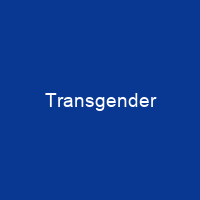Understanding the Term ‘Transgender’
What does it mean to be transgender? It’s a term that describes someone whose gender identity differs from their assigned sex at birth. This can include binary trans men and women, as well as non-binary or genderqueer individuals. But is being transgender the same as sexual orientation? Not quite – while many people use terms like gay, lesbian, bisexual, or straight to describe their romantic attractions, these are separate from one’s gender identity.
Legal and Social Challenges
The legal status of transgender people varies widely across different regions. Many face discrimination in the workplace, healthcare settings, and public accommodations. This can lead to significant stress and hardship. For instance, how many times have you encountered a situation where a transgender person was denied access to a restroom that matched their gender identity?
Medical Treatments
Medical treatments such as hormone replacement therapy (HRT) and surgery are often sought by transgender individuals to alleviate gender dysphoria. These procedures can significantly improve quality of life, but they come with risks and costs. Is it fair that not all transgender people have access to these necessary medical interventions?
Evolution of Terminology
The term ‘transgender’ has evolved over time. It was once considered a pejorative term, but now is widely accepted as an umbrella term for various gender identities and expressions. Other terms like transsexual, transvestite, and cross-dresser are still used by some, but the preference for ‘transgender’ has grown due to its modern inclusivity.
Historical Context
A precise history of transgender people is difficult to assess due to the lack of a modern concept until the mid-1900s. However, historical records show that some societies have had traditional third gender roles. For example, the Roman emperor Elagabalus and the ‘Scythian disease’ described by Herodotus provide early accounts of gender nonconformity.
Legal Protections
While progress has been made in recognizing transgender rights, many countries still lack legal protections against discrimination. In the United States, for instance, 90% of transgender Americans have faced workplace discrimination, according to a 2011 report. This highlights the ongoing need for comprehensive legislation that protects all members of the LGBTQ+ community.
Global Perspectives
The situation varies globally. In Europe, some countries require sterilization or a mental health diagnosis for legal gender recognition, while others have more progressive policies. Canada has updated its laws to include ‘gender identity and expression’ as protected grounds from discrimination, reflecting a growing acceptance of transgender identities.
Support and Services
Mental healthcare for transgender individuals can involve talking through feelings and may benefit from counseling or psychotherapy. However, many therapists lack formal training on gender identity issues, leading to inadequate support for many clients. This is a critical area that needs more attention.
Legal Procedures
Changing legal gender or name can be a complex process. In the US, transgender people are not legally protected from discrimination in many places. A 2011 report found that 90% of transgender Americans faced discrimination at work, and over half had been harassed or turned away when attempting to access public services.
Visibility and Acceptance
The LGBTQ+ community has historically accepted gender-variant people, but there is still controversy over who belongs within the community. The trans community made significant contributions to the gay liberation movement, but their participation was overlooked until recent years. Is it time for a more inclusive approach?
Media and Representation
Visibility has increased in recent years with media portrayals, annual events, and holidays such as International Transgender Day of Visibility and Transgender Day of Remembrance. The Transgender Pride Flag is a common symbol representing the transgender community, along with other symbols like the butterfly and pink/light blue yin and yang.

In conclusion, the journey towards understanding and accepting transgender individuals is ongoing. While significant progress has been made, there is still much work to be done in terms of legal protections, medical support, and social acceptance. The key lies in fostering a more inclusive society where everyone can live authentically without fear of discrimination or prejudice.
You want to know more about Transgender?
This page is based on the article Transgender published in Wikipedia (retrieved on February 27, 2025) and was automatically summarized using artificial intelligence.




